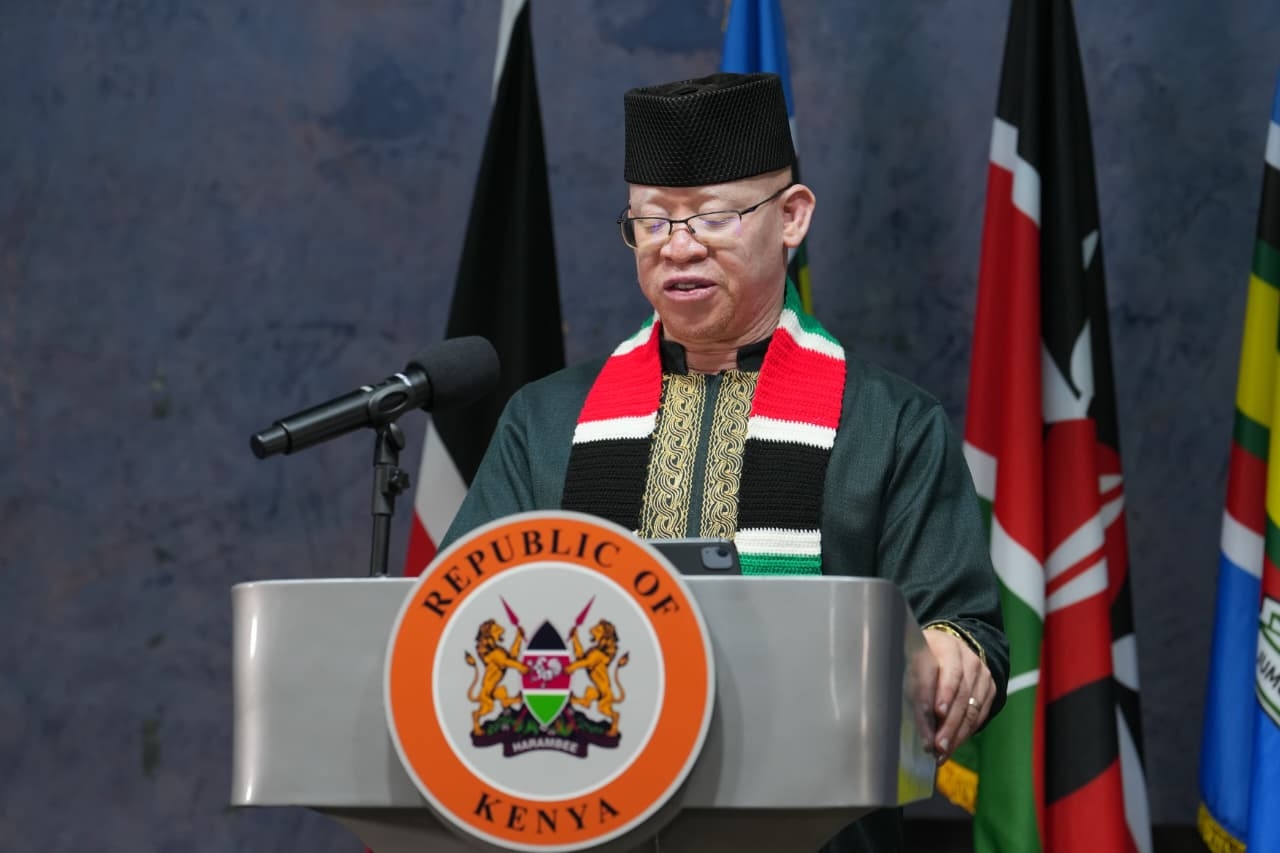

National Assembly Speaker Moses Wetang’ula has defended the recently enacted Computer Misuse and Cybercrimes (Amendment) Act, 2025, saying the law is designed to safeguard the sanctity of the family unit.
Speaking on Sunday during a church service at St. Teresa’s Isanjiro Catholic Church in Malava Town, Kakamega County, Wetang’ula dismissed claims that the law seeks to curtail freedom of expression.
Instead, he said it aims to promote responsible digital behaviour while combating violent extremism, online exploitation, and the spread of cultism in Kenya.
“Sometimes, as a Catholic, I feel saddened when people spread falsehoods about this law. The Act is not meant to gag anyone or restrict legitimate expression,” Wetang’ula said.
“It is meant to protect our families, especially our children, from harmful online content, deter violent extremism, and stop the spread of cult-like ideologies that prey on the young and vulnerable.”
The Speaker noted that Kenya’s rapid digital transformation has yielded enormous benefits in commerce, education, and communication, but has also opened the door to serious social risks such as cyberbullying, child pornography, online radicalisation, and the spread of misinformation.
“It would be irresponsible of us as leaders to look away while children are being exposed to violent, pornographic, or extremist content online,” he said, warning that the moral foundation of society could crumble if digital platforms remain unregulated.
Citing a case in the United States in which an adult was imprisoned for inciting a minor to self-harm through online interactions, Wetang’ula said the new Kenyan law draws inspiration from international best practices that prioritise the protection of minors and families.
“As a lawyer of many years, I can assure you this law is sound. Countries like the United States, France, Australia, and the United Kingdom have enacted similar laws to protect their societies. Kenya cannot be left behind,” he said.
According to Wetang’ula, the law empowers a dedicated commission to monitor, penalise, and take down websites that promote harmful content such as cultism, violent extremism, and pornography.
He referenced the 2023 Shakahola tragedy—where hundreds lost their lives after being indoctrinated by a cult leader—as a stark reminder of the dangers posed by unregulated digital spaces.
“We saw what happened in Shakahola, where innocent Kenyans lost their lives after being brainwashed through digital platforms. Such tragedies must never happen again,” he stated.
The Speaker urged parents to remain vigilant and take an active role in monitoring their children’s online activity.
“When I leave my phone with my children, I want them to see messages that are decent and educational, not pornographic material. As parents and as a nation, we must protect our children because they are still in formative stages,” he said.
National Assembly Majority Leader Kimani Ichung’wah, who accompanied Wetang’ula to the service, also defended the legislation, arguing that critics had misrepresented its intent.
“Critics have been spreading misinformation that the Act undermines freedom of expression. That is false. The amendment was modeled to protect Kenyan families—families that have suffered due to unregulated online content,” said Ichung’wah.
The Computer Misuse and Cybercrimes (Amendment) Act, 2025 introduces stricter penalties for online offences involving child exploitation, hate speech, and digital radicalisation.
It also enhances the government’s capacity to monitor and take down harmful digital content, a move supporters say is essential to preserving Kenya’s moral fabric in the digital age.














